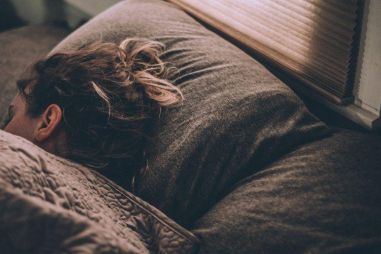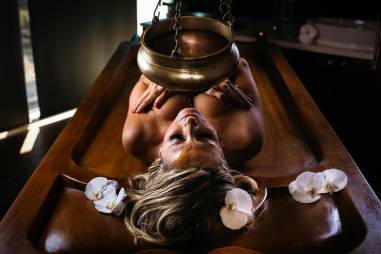7x Essential Tips for a Restful Night's Sleep
February 22, 2019
Struggling to get a good night's sleep? You're not alone. Quality sleep is crucial for maintaining physical and mental health, but many of us find it hard to fall asleep or stay asleep. Whether it's stress, lifestyle habits, or the distractions of modern life, sleep can easily become disrupted. In this blog, we’ll explore 7 proven tips to help you improve your sleep routine and wake up feeling refreshed and energized. From simple changes in your environment to mindful practices, these tips can transform your nights and boost your overall well-being.
Discover 7 effective tips for a better night's sleep and wake up refreshed
- The busyness of the day brings your body into a state of readiness so that you can react with alertness and perform well. But when it comes to falling asleep, the body needs to be in relax mode. Which is why relaxing before bedtime is so important. That is, real relaxation. This ideally means staying clear of your mobile and computer after dinner. And it’s best to switch off the TV as early as possible. This helps calm your nervous system so your body knows it can go to sleep as soon as you get into bed.
- While it may sound a little early, ten pm is the best time for our bodies to go to sleep. This corresponds with bedtime in our natural circadian rhythms. The experts are convinced that you’ll get to sleep after trying it for a few nights. View it as a new pattern you just need to get used to; one that’ll do you a lot of good. Why? Not only because you’ll sleep better for it, but also because you’ll wake-up naturally feeling refreshed between the hours of 5am and 7am, thanks to certain hormones that promote waking.
- Wondering why you do sleep so well on holiday, with just the murmur of the sea in the background? Probably because your hotel room is quiet and peaceful. At home, too, it’s best to remove TVs, computers and anything else that reminds you of a stressful life from the bedroom. You want the temperature in the room to be between 16 and 19 degrees. That way, you’ll have, created the right environment for a good night’s sleep.
- Try nature’s answer to a sleeping pill in the form of a foot massage or footbath with essential lavender oil. Put on a pair of socks straight after and jump into bed. A magnesium supplement can also help. This mineral soothes the nervous system and helps rebalance sleep patterns. Another idea is a cup of herbal tea. Chamomile, mulberry and rooibos all have a calming effect.
- Digesting food costs the body a lot of energy. And yet sleep is so needed to help it recover from a busy day. Which is why going to sleep on a full tummy isn’t such a great idea. It’s best to eat three hours before bed, so that your stomach is empty. It’s also best not to drink one hour before bed, so that you won’t need to disrupt your sleep in order to go to the toilet.
- There’s a reason we close our eyes when we go to sleep: we’re shutting out the light so that our brain (the ‘thinking’ part, in particular’) understands that it can stop its activities for the day. Eye masks are great for this reason. They make it extra dark and thus still your mind, which will aid your sleep.
- The name ‘nightcap’ is misleading: consuming alcohol before bed isn’t actually a good idea at all. It can affect the quality of your sleep, causing you to wake up more often in the night and leaving you to wake up not feeling rested as a result. If you have trouble sleeping, it’s also a good idea to avoid caffeinated drinks (that includes black tea).
Categories

 EN
EN NL
NL BE
BE















